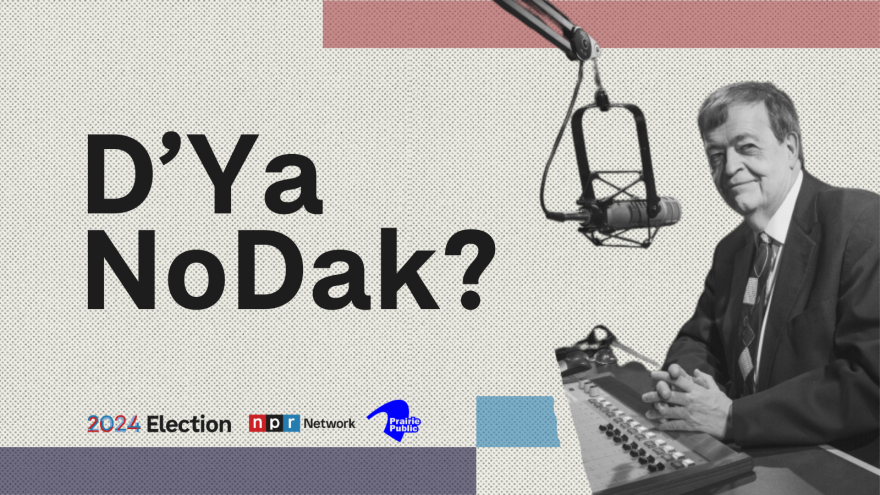Hi, I'm Dave Thompson. Welcome to the first edition of my series, D’Ya NoDak? For now, at least, this series will concentrate on politics during this election year.
I’m often asked, “Why do we pay so much attention to government and politics in North Dakota?” When I speak to service clubs and other groups, I use this line: “Because we don’t have a pro sports team!”
The state political conventions are coming up. They’re on the same weekend, in the same city (Fargo). It never used to be that way. The party leaders used to have an informal confab, and have them on separate weekends in order to not split news coverage. And some are asking: “Do conventions matter anymore?”
That’s because some of the candidates in the GOP have said they’ll go to the primary, win or lose at the convention, or just skip the convention itself. There’s precedent for that.
When Senator Kevin Cramer — who was a member of the North Dakota Public Service Commission — first ran for the state’s lone Congressional seat in 2012, he decided to skip the convention altogether, even though he had once been the party chairman. Instead, he went right to the primary, where he defeated fellow PSC member Brian Kalk. He won the November election with almost 55% of the vote.
Governor Doug Burgum also skipped the 2016 convention, choosing instead to run in the primary against Attorney General Wayne Stenehjem, whom the convention endorsed. He won that race, in a hard fought campaign, outspending Stenehjem by almost 2-1. But it paved the way for an easy November election, with more than three-fourths of the vote.
Lieutenant Governor Tammy Miller may take a page from Gov. Burgum’s playbook: she has said she will run in the primary, skipping the April convention. Her likely opponent will be current U.S. House Representative Kelly Armstrong. He will seek the party endorsement at the convention.
With Armstrong pursuing the governor’s seat, former state senator Tom Campbell and current Public Service Commissioner Julie Fedorchak say they’ll seek the nomination for North Dakota’s U.S. House seat. And like the GOP gubernatorial candidates, if they don’t get the convention endorsement, they’ll make their case directly to voters in the primary. A third candidate — former state Rep. Rick Becker — is not eligible for the convention’s blessing, because he ran against Senator John Hoeven as an independent. Yet if he wins the primary, he would be on the ballot in the GOP column.
The real benefit of heading to the convention is media coverage. I’ll decamp to Fargo for the week, along with reporters from a number of other North Dakota media organizations. And even for candidates who opt out, they can use the time raising money to spend in the primary.
So, do conventions still matter? This convention will matter — to history.
As a moment in time, it will tell part of a story about how the Republican Party in North Dakota splintered the moderate party faithful and the more right-of-center Republicans hitching their fortunes to former President Donald Trump. In fact, over the weekend, the North Dakota GOP released a proposed rule change that would deny support to candidates who don’t receive the state GOP endorsement. In order to make the rule change, two-thirds of delegates would need to approve it at the convention.
Maybe by the time historians analyze this convention, North Dakota will have a professional sports team.
—
Sign up to receive my weekly D'Ya NoDak newsletter here — I'll be sending an email each week leading up to the North Dakota GOP and Democratic-NPL conventions.


